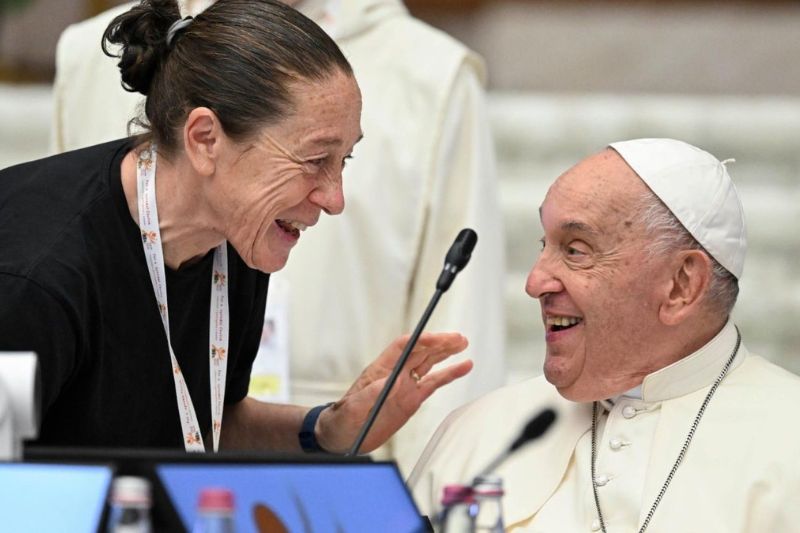Keywords: Interreligious Dialogue
-

RELIGION
- Bruce Duncan
- 14 November 2024
14 Comments
The Synod is possibly the most important event in the Catholic Church since the Second Vatican Council. And despite its focus on internal Church reform and participation, can it effectively address broader social and moral issues in the world while still promoting a more inclusive and accountable Church?
READ MORE
-

EDUCATION
The tertiary level is designed to promote change and innovation. If there is no tertiary level, there is no growth in our understanding of global religious systems, and no emerging individuals who possess critical thinking skills and historical knowledge of these systems. Without these individuals, there’s a risk that religious institutions will become more insular, regressive, disconnected and, most disastrously, unchecked.
READ MORE 
-

RELIGION
- Andrew Hamilton
- 22 August 2018
10 Comments
When conversation in a community is restricted to the public language of broader society, its power to engage community members is diminished. That has happened in the development of a theology of religions within Christian churches. It often emphasises themes that unite religions and are less specifically and distinctively Christian.
READ MORE 
-

EUREKA STREET TV
- Peter Kirkwood
- 14 December 2012
For the past three years video consultant Peter Kirkwood has produced a fortnightly series featuring some of the world's leading figures of faith and spirituality. We take a look back at some of his best Eureka Street TV interviews, including Hans Kung, Anwar Ibrahim, Peter Kennedy and more.
READ MORE 
-

EUREKA STREET TV
- Peter Kirkwood
- 13 December 2012
READ MORE 
-

EUREKA STREET TV
- Peter Kirkwood
- 07 September 2012
READ MORE
-

EUREKA STREET TV
- Peter Kirkwood
- 07 September 2012
1 Comment
The tragic deaths of five Australian soldiers last week in Afghanistan highlights yet again the ongoing cross-cultural and interreligious violence that is very much a mark of our times. Usually we look for solutions to conflict through talking and negotiations. However interfaith minister Helen Summers does it through promotion of cultural activities.
READ MORE
-

EUREKA STREET TV
- Peter Kirkwood
- 13 July 2012
4 Comments
READ MORE 
-

EUREKA STREET TV
- Peter Kirkwood
- 13 July 2012
'I was in London on the day of the 2005 bombs. It was my 9/11 moment and had a profound impact on me. I wanted to do something constructive afterwards, so I had the idea of asking people of different faiths for their favourite prayer.' Ros Bradley is the editor of two books of prayers from all the major religious traditions.
READ MORE 
-

EUREKA STREET TV
- Peter Kirkwood
- 04 May 2012
6 Comments
READ MORE 
-

EUREKA STREET TV
- Peter Kirkwood
- 04 May 2012
'The Anders Breivik example shows us that extremism is not one way ... We really need to think deeply about some of our prejudices.' Australian Muslim academic Mehmet Ozalp sees the case of Norwegian mass-murderer Breivik as highlighting the urgent need for interreligious and cross-cultural dialogue.
READ MORE 
-

RELIGION
- Frank Brennan
- 26 April 2012
4 Comments
'This Jesuit network will not succeed where Copenhagen failed, but it is an incremental contribution to one of the great moral challenges of our age [climate change].' Text from Frank Brennan's paper 'An interpretation and a raincheck on GC 35's call to develop international and interprovincial collaboration', Boston College, 28 April 2012.
READ MORE